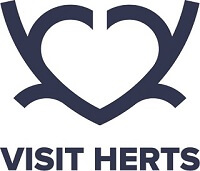The Chamber has received the below from Visit Herts that we think could be helpful for our members:
 As we’re sure you are aware, the Prime Minister announced a second national lockdown for England on the 31st October. This lockdown comes into effect at 00:01 Thursday 5th November for 4 weeks (following a Commons vote on Wednesday and regulations published on Tuesday), so until 2nd December 2020. After the four weeks, the Government will seek to ease restrictions, going back into the tiered system on a local and a regional basis according to the latest data and trends.
As we’re sure you are aware, the Prime Minister announced a second national lockdown for England on the 31st October. This lockdown comes into effect at 00:01 Thursday 5th November for 4 weeks (following a Commons vote on Wednesday and regulations published on Tuesday), so until 2nd December 2020. After the four weeks, the Government will seek to ease restrictions, going back into the tiered system on a local and a regional basis according to the latest data and trends.
We have summarised the key information for tourism, hospitality and leisure businesses below and will keep you updated as more information becomes available. If you have any questions or issues you would like us to raise on your behalf, please don’t hesitate to get in touch.
Businesses that must close
To reduce social contact, the Government has ordered certain businesses and venues to close. These include:
- All non-essential retail, including, but not limited to clothing and electronics stores, vehicle showrooms, travel agents, betting shops, auction houses, tailors, car washes, tobacco and vape shops.
- Indoor and outdoor leisure facilities such as bowling alleys, leisure centres and gyms, sports facilities including swimming pools, golf courses and driving ranges, dance studios, stables and riding centres, soft play facilities, climbing walls and climbing centres, archery and shooting ranges, water and theme parks,
- Entertainment venues such as theatres, concert halls, cinemas, museums and galleries, casinos, adult gaming centres and arcades, bingo halls, bowling alleys, concert halls, zoos and other animal attractions, botanical gardens;
- Personal care facilities such as hair, beauty and nail salons, tattoo parlours, spas, massage parlours, body and skin piercing services, non-medical acupuncture, and tanning salons.
Food shops, supermarkets, garden centres and certain other retailers providing essential goods and services can remain open. Essential retail should follow COVID-secure guidelines to protect customers, visitors and workers.
Certain exceptions to this apply including:
- Non-essential retail can remain open for delivery to customers and click-and-collect.
- Playgrounds can remain open.
- Hospitality venues like restaurants, bars and pubs must close, but can still provide takeaway and delivery services. However, takeaway of alcohol will not be allowed.
- Hotels, hostels and other accommodation should only open for those who have to travel for work purposes and for a limited number of other exemptions which will be set out in law.
- Some venues will be allowed to remain open for specific exempt activities, like childcare and support groups.
- Outdoor public spaces can remain open for exercise and this includes public gardens (whether or not you pay to enter them)
A full list of the business closures will be published and set out in law.
People can also exercise or visit outdoor public places with the people you live with, your support bubble, or 1 person from another household. Outdoor public places include:
- Parks, beaches, countryside,
- Public gardens (whether or not you pay to enter them), allotments
- Playgrounds
Overnight stays and holidays away from primary residences will not be allowed- including holidays in the UK and abroad. This includes staying in a second home, if you own one, or staying with anyone you do not live with or are in a support bubble with. There are specific exceptions, for example if you need to stay away from home (including in a second home) for work purposes.
Weddings, civil partnership ceremonies will not be permitted to take place except in exceptional circumstances.
Support for businesses
Extension of the CJRS
To support businesses through this the Prime Minister also announced that the Coronavirus Job Retention Scheme (CJRS) – also known as the Furlough scheme – will remain open until December, with employees receiving 80% of their current salary for hours not worked, up to a maximum of £2,500.
- All employers are eligible
- Businesses will have flexibility to bring furloughed employees back to work on a part time basis or furlough them full-time
- The government will pay 80% of wages up to a cap of £2,500 for the hours that the employee doesn’t work
- Businesses will cover National Insurance and employer pension contributions
- The Job Support Scheme, which was scheduled to come in on Sunday 1st November, has been postponed until the furlough scheme ends
- Employees must be on an employer’s PAYE payroll by 23:59 30th October 2020
Additional guidance will be set out shortly.
Grants for businesses forced to close
Businesses required to close in England due to local or national restrictions will be eligible for the following:
- For properties with a rateable value of £15k or under, grants to be £1,334 per month, or £667 per two weeks
- For properties with a rateable value of between £15k-£51k grants to be £2,000 per month, or £1,000 per two weeks
- For properties with a rateable value of £51k or over grants to be £3,000 per month, or £1,500 per two weeks
Also, £1.1bn is being given to Local Authorities, distributed on the basis of £20 per head, for one-off payments to enable them to support businesses more broadly.